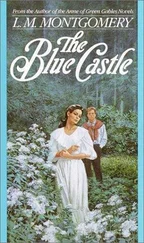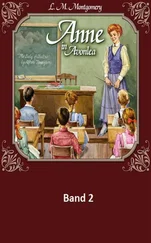Lucy Montgomery - Rilla of Ingleside
Здесь есть возможность читать онлайн «Lucy Montgomery - Rilla of Ingleside» весь текст электронной книги совершенно бесплатно (целиком полную версию без сокращений). В некоторых случаях можно слушать аудио, скачать через торрент в формате fb2 и присутствует краткое содержание. Жанр: Детская проза, на английском языке. Описание произведения, (предисловие) а так же отзывы посетителей доступны на портале библиотеки ЛибКат.
- Название:Rilla of Ingleside
- Автор:
- Жанр:
- Год:неизвестен
- ISBN:нет данных
- Рейтинг книги:4 / 5. Голосов: 1
-
Избранное:Добавить в избранное
- Отзывы:
-
Ваша оценка:
- 80
- 1
- 2
- 3
- 4
- 5
Rilla of Ingleside: краткое содержание, описание и аннотация
Предлагаем к чтению аннотацию, описание, краткое содержание или предисловие (зависит от того, что написал сам автор книги «Rilla of Ingleside»). Если вы не нашли необходимую информацию о книге — напишите в комментариях, мы постараемся отыскать её.
Rilla of Ingleside — читать онлайн бесплатно полную книгу (весь текст) целиком
Ниже представлен текст книги, разбитый по страницам. Система сохранения места последней прочитанной страницы, позволяет с удобством читать онлайн бесплатно книгу «Rilla of Ingleside», без необходимости каждый раз заново искать на чём Вы остановились. Поставьте закладку, и сможете в любой момент перейти на страницу, на которой закончили чтение.
Интервал:
Закладка:
Rilla found herself standing alone and listening to disconnected scraps of talk as people walked up and down past her.
"I told Mark to wait and see if they asked for a second lot of men. If they did I'd let him go—but they won't," said Mrs. Palmer Burr.
"I think I'll have it made with a crush girdle of velvet," said Bessie Clow.
"I'm frightened to look at my husband's face for fear I'll see in it that he wants to go too," said a little over-harbour bride.
"I'm scared stiff," said whimsical Mrs. Jim Howard. "I'm scared Jim will enlist—and I'm scared he won't."
"The war will be over by Christmas," said Joe Vickers.
"Let them European nations fight it out between them," said Abner Reese.
"When he was a boy I gave him many a good trouncing," shouted Norman Douglas, who seemed to be referring to some one high in military circles in Charlottetown. "Yes, sir, I walloped him well, big gun as he is now."
"The existence of the British Empire is at stake," said the Methodist minister.
"There's certainly something about uniforms," sighed Irene Howard.
"It's a commercial war when all is said and done and not worth one drop of good Canadian blood," said a stranger from the shore hotel.
"The Blythe family are taking it easy," said Kate Drew.
"Them young fools are just going for adventure," growled Nathan Crawford.
"I have absolute confidence in Kitchener," said the over-harbour doctor.
In these ten minutes Rilla passed through a dizzying succession of anger, laughter, contempt, depression and inspiration. Oh, people were—funny! How little they understood. "Taking it easy," indeed—when even Susan hadn't slept a wink all night! Kate Drew always was a minx.
Rilla felt as if she were in some fantastic nightmare. Were these the people who, three weeks ago, were talking of crops and prices and local gossip?
There—the train was coming—mother was holding Jem's hand—Dog Monday was licking it—everybody was saying good-bye—the train was in! Jem kissed Faith before everybody—old Mrs. Drew whooped hysterically—the men, led by Kenneth, cheered—Rilla felt Jem seize her hand—"Good-bye, Spider"—somebody kissed her cheek—she believed it was Jerry but never was sure—they were off—the train was pulling out—Jem and Jerry were waving to everybody—everybody was waving back—mother and Nan were smiling still, but as if they had just forgotten to take the smile off—Monday was howling dismally and being forcibly restrained by the Methodist minister from tearing after the train—Susan was waving her best bonnet and hurrahing like a man—had she gone crazy?—the train rounded a curve. They had gone.
Rilla came to herself with a gasp. There was a sudden quiet. Nothing to do now but to go home—and wait. The doctor and Mrs. Blythe walked off together—so did Nan and Faith—so did John Meredith and Rosemary. Walter and Una and Shirley and Di and Carl and Rilla went in a group. Susan had put her bonnet back on her head, hindside foremost, and stalked grimly off alone. Nobody missed Dog Monday at first. When they did Shirley went back for him. He found Dog Monday curled up in one of the shipping-sheds near the station and tried to coax him home. Dog Monday would not move. He wagged his tail to show he had no hard feelings but no blandishments availed to budge him.
"Guess Monday has made up his mind to wait there till Jem comes back," said Shirley, trying to laugh as he rejoined the rest. This was exactly what Dog Monday had done. His dear master had gone—he, Monday, had been deliberately and of malice aforethought prevented from going with him by a demon disguised in the garb of a Methodist minister. Wherefore, he, Monday, would wait there until the smoking, snorting monster, which had carried his hero off, carried him back.
Ay, wait there, little faithful dog with the soft, wistful, puzzled eyes. But it will be many a long bitter day before your boyish comrade comes back to you.
The doctor was away on a case that night and Susan stalked into Mrs. Blythe's room on her way to bed to see if her adored Mrs. Dr. dear were "comfortable and composed." She paused solemnly at the foot of the bed and solemnly declared,
"Mrs. Dr. dear, I have made up my mind to be a heroine."
"Mrs. Dr. dear" found herself violently inclined to laugh—which was manifestly unfair, since she had not laughed when Rilla had announced a similar heroic determination. To be sure, Rilla was a slim, white-robed thing, with a flower-like face and starry young eyes aglow with feeling; whereas Susan was arrayed in a grey flannel nightgown of strait simplicity, and had a strip of red woollen worsted tied around her grey hair as a charm against neuralgia. But that should not make any vital difference. Was it not the spirit that counted? Yet Mrs. Blythe was hard put to it not to laugh.
"I am not," proceeded Susan firmly, "going to lament or whine or question the wisdom of the Almighty any more as I have been doing lately. Whining and shirking and blaming Providence do not get us anywhere. We have just got to grapple with whatever we have to do whether it is weeding the onion patch, or running the Government. I shall grapple. Those blessed boys have gone to war; and we women, Mrs. Dr. dear, must tarry by the stuff and keep a stiff upper lip."
Chapter VII
A WAR-BABY AND A SOUP TUREEN
"Liege and Namur—and now Brussels!" The doctor shook his head. "I don't like it—I don't like it."
"Do not you lose heart, Dr. dear; they were just defended by foreigners," said Susan superbly. "Wait you till the Germans come against the British; there will be a very different story to tell and that you may tie to."
The doctor shook his head again, but a little less gravely; perhaps they all shared subconsciously in Susan's belief that "the thin grey line" was unbreakable, even by the victorious rush of Germany's ready millions. At any rate, when the terrible day came—the first of many terrible days—with the news that the British army was driven back they stared at each other in blank dismay.
"It—it can't be true," gasped Nan, taking a brief refuge in temporary incredulity.
"I felt that there was to be bad news today," said Susan, "for that cat-creature turned into Mr. Hyde this morning without rhyme or reason for it, and that was no good omen."
"'A broken, a beaten, but not a demoralized, army,'" muttered the doctor, from a London dispatch. "Can it be England's army of which such a thing is said?"
"It will be a long time now before the war is ended," said Mrs. Blythe despairingly.
Susan's faith, which had for a moment been temporarily submerged, now reappeared triumphantly.
"Remember, Mrs. Dr. dear, that the British army is not the British navy. Never forget that. And the Russians are on their way, too, though Russians are people I do not know much about and consequently will not tie to."
"The Russians will not be in time to save Paris," said Walter gloomily. "Paris is the heart of France—and the road to it is open. Oh, I wish"—he stopped abruptly and went out.
After a paralysed day the Ingleside folk found it was possible to "carry on" even in the face of ever-darkening bad news. Susan worked fiercely in her kitchen, the doctor went out on his round of visits, Nan and Di returned to their Red Cross activities; Mrs. Blythe went to Charlottetown to attend a Red Cross Convention; Rilla after relieving her feelings by a stormy fit of tears in Rainbow Valley and an outburst in her diary, remembered that she had elected to be brave and heroic. And, she thought, it really was heroic to volunteer to drive about the Glen and Four Winds one day, collecting promised Red Cross supplies with Abner Crawford's old grey horse. One of the Ingleside horses was lame and the doctor needed the other, so there was nothing for it but the Crawford nag, a placid, unhasting, thick-skinned creature with an amiable habit of stopping every few yards to kick a fly off one leg with the foot of the other. Rilla felt that this, coupled with the fact that the Germans were only fifty miles from Paris, was hardly to be endured. But she started off gallantly on an errand fraught with amazing results.
Читать дальшеИнтервал:
Закладка:
Похожие книги на «Rilla of Ingleside»
Представляем Вашему вниманию похожие книги на «Rilla of Ingleside» списком для выбора. Мы отобрали схожую по названию и смыслу литературу в надежде предоставить читателям больше вариантов отыскать новые, интересные, ещё непрочитанные произведения.
Обсуждение, отзывы о книге «Rilla of Ingleside» и просто собственные мнения читателей. Оставьте ваши комментарии, напишите, что Вы думаете о произведении, его смысле или главных героях. Укажите что конкретно понравилось, а что нет, и почему Вы так считаете.


